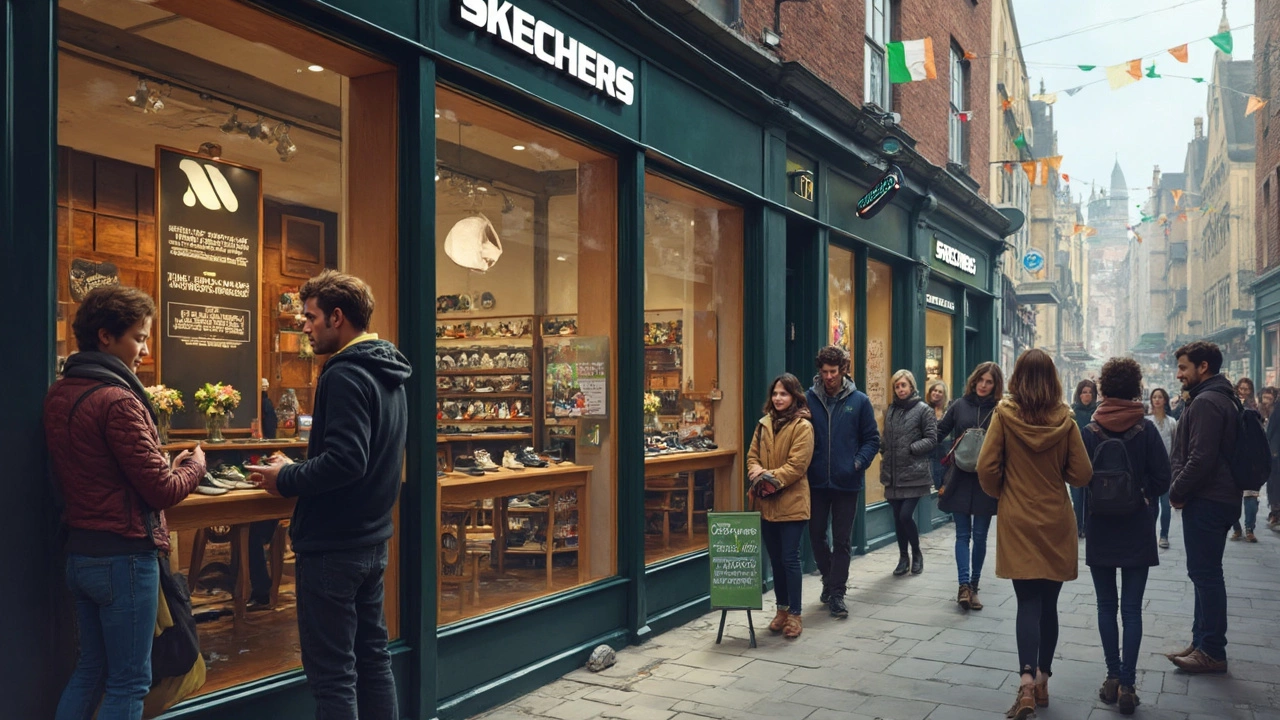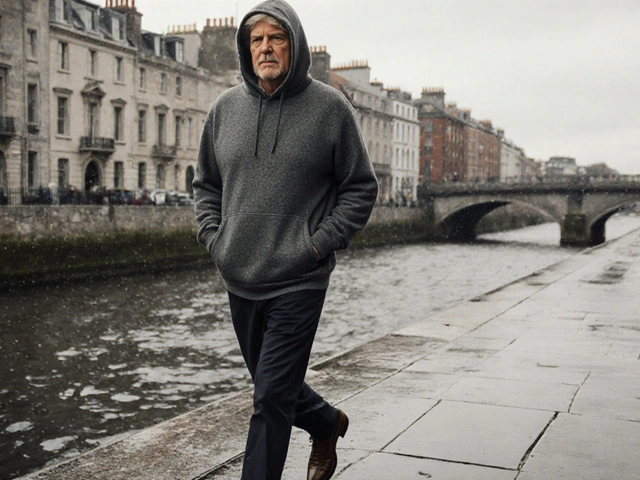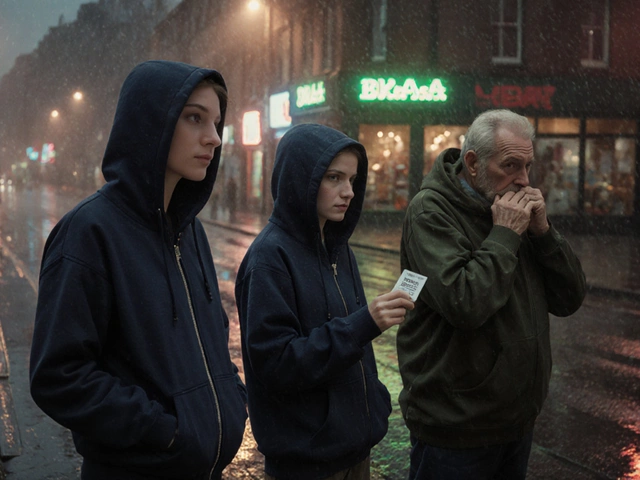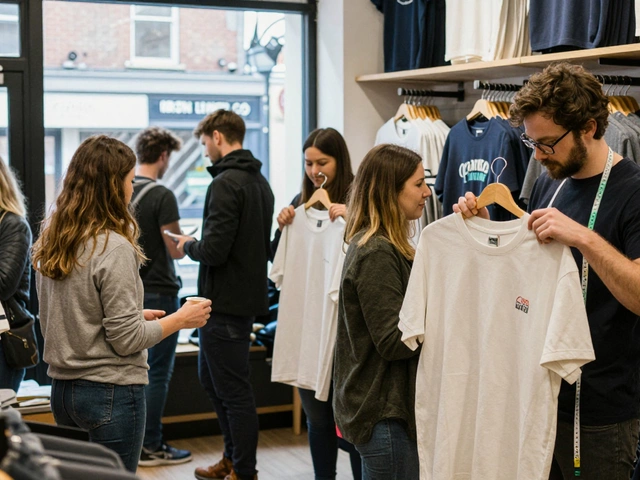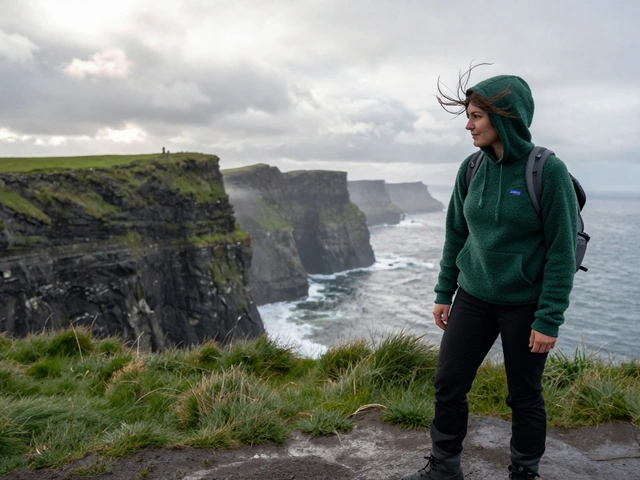Shoe shopping in Ireland used to be simple. You popped into Arnotts or a local shop, spotted a pair you liked—maybe Skechers leather shoes, since they're everywhere from Limerick to Letterkenny—and off you went. Lately though, Skechers is centre-stage for the wrong reasons. There’s been a wave of controversy hitting the brand and Irish people are talking.
In the news, and all over forums like Boards.ie, people have started questioning how Skechers makes their leather shoes. The issues aren’t just about style or comfort anymore (though Whiskers, my cat, still prefers lying on anything soft, no matter the brand!). The focus has shifted to whether Skechers is upfront about their materials, if their factories treat workers fairly, and whether their eco-friendly claims hold up in reality. And when you live in a country where chatting about the weather can turn into a full-blown debate, you can be sure people don’t let a shoe scandal slide easily.
This isn't just a niche worry either. Irish shoppers are pretty switched on, especially after years of ‘green’ claims by brands that don't always stand up to scrutiny. When a company as big as Skechers gets called out for possible greenwashing, it hits home for anyone trying to make ethical choices. And let’s face it—no one in Galway or Cork wants to shell out for new shoes only to find out the brand's talk of 'ethical leather' is all hot air.
- Why Skechers is In the Hot Seat in Ireland
- Leather Sourcing: Greenwashing or Genuine?
- Irish Shopping Habits and the Local Backlash
- Alternatives and What to Look for Locally
- Tips for Making a Smart Shoe Choice
Why Skechers is In the Hot Seat in Ireland
It’s hard to walk down Grafton Street or through Mahon Point Shopping Centre without passing a Skechers store these days. That’s what makes the backlash in Ireland so sharp—it’s a brand people here know and buy. The controversy kicked off when international reports flagged that Skechers was less than clear about where its leather actually comes from. Irish shoppers, especially those tuned in to sustainability and animal welfare, started digging. It didn’t take long for questions to pile up around the brand’s environmental impact, worker conditions, and whether their claims about ‘ethical’ leather are just a bit of spin.
One of the main complaints in the Irish market was about so-called greenwashing. Skechers said their leather comes from “responsible sources”, but they haven’t backed it up with proper evidence. In March 2024, a Dublin consumer watchdog said clear proof was missing. Some retail workers in outlets like Dundrum Town Centre said customers kept asking, “Is this really ethical leather?” It was enough to make headlines in The Irish Times and get people talking in cafés and WhatsApp groups right across the country.
Worker rights also landed in the spotlight. International media brought up reports from factories in Asia, where some Skechers shoes are made. There were claims of long hours and pay below fair living wage standards. In Ireland, this hit home for people who know the value of a fair shake—from hospitality staff in Galway to farmers at the Ballinasloe Market, fair work is big here.
So, what’s happening on the ground? Here’s a handy breakdown of what’s come out so far for Irish shoppers.
| Controversy Point | Details (2023-2025) |
|---|---|
| Leather Sourcing | Lack of detail on origin, no independent third-party audits supplied for Irish sales |
| Environmental Claims | Advertising 'eco' benefits without full supply chain transparency; no ISO environmental certifications listed for Irish products |
| Worker Conditions | Media reports in 2024 on underpayment and long hours in overseas factories; no clear statements for Irish shoppers on improvement measures |
| Customer Trust | High trust lost in local markets (Arnotts saw a 9% drop in Skechers sales Q1 2025 compared to Q1 2024) |
It all adds up to a big headache for the brand here. The key takeaway? Before you buy, it pays to know exactly what you’re getting. Next up, we’ll dig deeper into what Skechers actually says about its leather—and why many Irish shoppers aren’t convinced.
Leather Sourcing: Greenwashing or Genuine?
This is where things get sticky for Skechers—especially here in Ireland, where people genuinely care where their leather comes from. A lot of shoe brands claim their products are made with 'ethical' or 'responsibly sourced' leather, but what does that really mean in practice?
Skechers has made statements about using 'sustainable' and 'certified' leathers, but they’re not that clear about the details. They mention being members of the Leather Working Group (LWG), an international group that audits tanneries for things like water use and pollution. However, being an LWG member doesn’t automatically mean every single piece of leather in those shoes is squeaky clean. Even if the tannery is certified, the rest of the supply chain—like where the cows are from or how the hides are processed—might not be as transparent.
For Irish shoppers who like things straightforward (think your regulars at the Brown Thomas shoe department), this lack of real transparency is a big reason for the backlash. Greenwashing is when a company talks up their eco-credentials to look good, but doesn’t actually back it up with proper proof or real change. That’s the buzz on Reddit Ireland and even on local radio call-ins. Shoppers just want honesty, especially when paying €90 or more for a pair of leather Skechers at Elverys or JD Sports.
Here’s a closer look at what Skechers claims versus what watchdog organisations have found, so you can judge for yourself:
| Claim | What’s Verified? | Irish Shopper Relevance |
|---|---|---|
| LWG-certified leather | Some tanneries used by Skechers are confirmed LWG Silver or Gold rated | Better environmental standards, but not a guarantee for animal welfare or worker rights |
| ‘Ethical sourcing’ statements | No detailed, public supply chain maps or full traceability | Irish buyers have no way to check exactly where the leather comes from |
| Recycled materials claims | Some shoe lines use recycled foam, but less info on leather recycling or bio-based materials | Not all Skechers lines available in Ireland have these features yet |
If you want to cut through the fuss, look for independent eco-labels or check the Skechers website for updates before you head to your nearest Dundrum shopping centre. Use your voice, too: Irish retailers will often flag products as more sustainable if customers start asking tough questions. And if you want total assurance, local Irish brands like Dubarry or shoemakers in Kilkenny are more upfront about their materials—from what’s tanned to how it lands on the shelf.
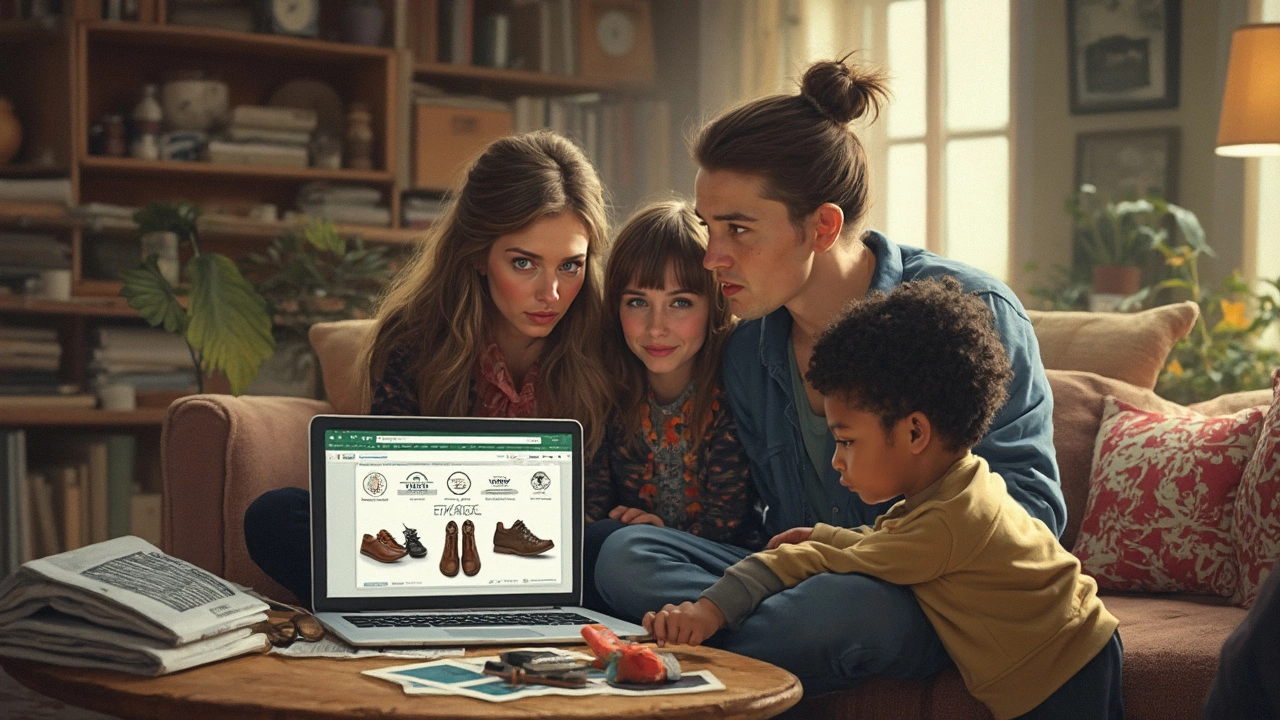
Irish Shopping Habits and the Local Backlash
People in Ireland aren’t shy about putting their money where their mouth is. If a brand messes up, Irish shoppers vote with their wallets. After the Skechers controversy landed in the media, you could see the vibe changing in shops and online. Posts on Facebook groups like "Buy and Sell Ireland" and the subreddit r/ireland have featured real people talking about their distrust over big brands making bold ethical claims.
Folks here think long and hard before buying leather shoes. It’s still common to head to a shop in person–we’re not as online-focused as some other places. Walking down Grafton Street in Dublin or the city centre in Cork, you'll overhear chats about which brands walk the walk, and which are just talk. There’s a big link between shopping habits and local pride: brands that don’t reflect Irish values don’t last long.
When it comes to Skechers, it’s not just about the materials used, but who gets hurt in the making. News coverage from RTÉ in early 2024 about questionable overseas labour practices sparked real uproar. Groups like FairWear Ireland picked up on this, calling for better transparency from brands sold locally. Many Irish shoppers said they’d rather pay a tenner more for something from a local maker in Kilkenny than buy from a multinational with a murky record.
- Shoppers have started asking more questions—about worker rights, animal welfare, and recycled packaging.
- Retailers like Brown Thomas and Shoe Zone have seen more people enquiring about shoe origins.
- It's not rare now for a friend to send you a WhatsApp link warning about brands under scrutiny, including Skechers.
All this means brands can’t just market a “green” or “ethical” image—they’ll get called out if their claims don’t hold up. For anyone new to Ireland, it’s worth knowing: people here genuinely care about values, and those shopping habits have real bite when there’s a backlash.
Alternatives and What to Look for Locally
If you’re feeling iffy about buying Skechers these days, don’t worry—there’s no shortage of alternatives in Ireland. Plenty of brands here put effort into ethical sourcing, clear labelling, and even offer shoe recycling at local shops.
For starters, Irish brands like Dubarry (famous in Galway, especially for their boat shoes and boots) use well-documented European leather. They're up front about where their materials come from and have strong recycling programmes in Ireland. The Wexford-based company has been around since 1937, so they’ve built trust with local shoppers.
Brogues and handmade sandals from Shoehorn in Dublin’s St. Stephen’s Green centre are popular, especially if you want something a bit more artisanal. They work with local craftspeople and explain the origins of their leather—no guessing game required.
Besides brands, more Irish shops now host shoe recycling bins. Clarks stores in Cork and Belfast offer drop-offs for old shoes; Oxfam and Enable Ireland shops take donations for reuse or recycling. It’s worth asking, wherever you’re buying.
What should you focus on if you want to steer clear of controversy? Here’s a quick checklist:
- Look for transparency about leather sourcing. Avoid brands that dodge the question when asked.
- Check store reviews on Trustpilot or the Irish Consumers Association site.
- Ask about workplace standards or look for Fairtrade certification.
- Consider veggie or non-leather options—Born Living (sold in Brown Thomas) makes some nice vegan trainers.
- Ask about recycling or trade-in schemes, especially if you go through shoes fast in the Irish weather!
Here’s a comparison of popular shoe brands in Ireland on key points:
| Brand | Leather Sourced in EU? | Factory Transparency | Shoe Recycling Options |
|---|---|---|---|
| Skechers | Mixed/unclear | Low | Few, mostly online |
| Dubarry | Yes | High | Available in-shop |
| Clarks | Mostly EU | Medium | Available in-shop |
| Born Living (Vegan) | N/A (Non-leather) | Medium | Not offered |
Shopping local doesn’t just help you avoid controversy—it keeps your euro supporting Irish jobs and communities, too. And because Irish sales staff know their stuff, they won’t fob you off with vague answers if you ask about sourcing. Honestly, if more brands took a leaf from Dubarry’s book, we’d all have an easier time making good shoe decisions.
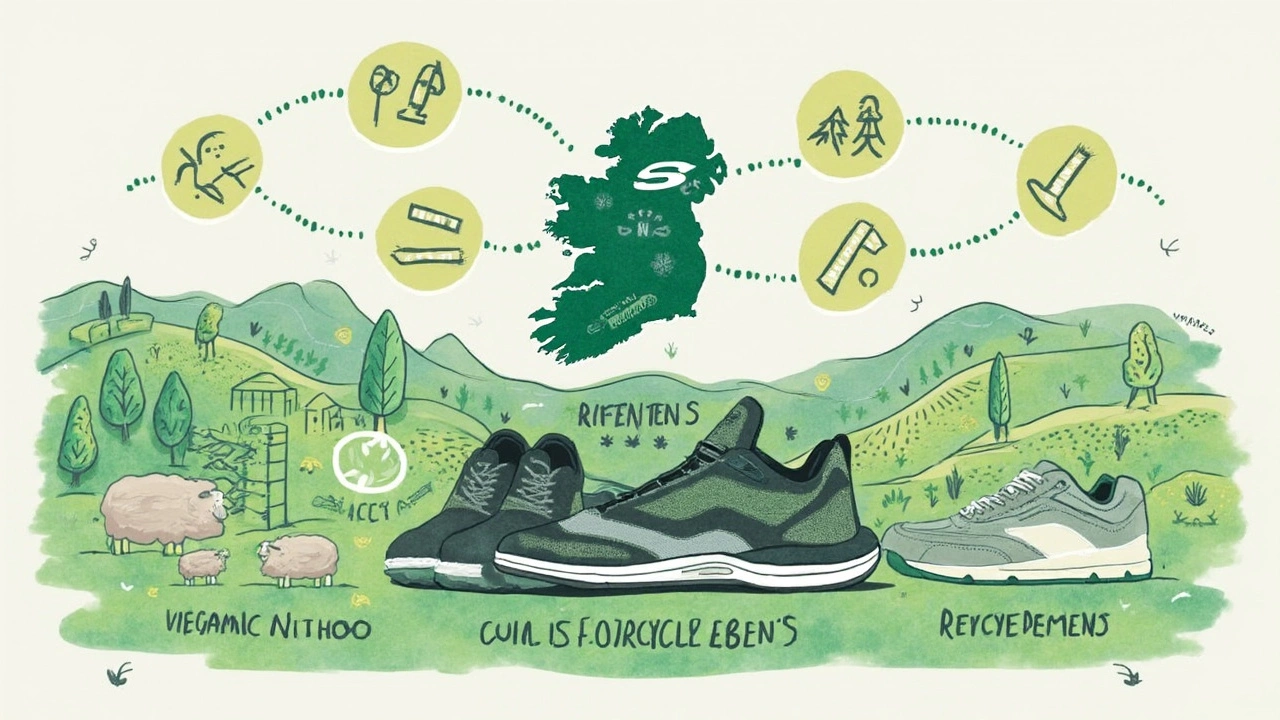
Tips for Making a Smart Shoe Choice
Buying shoes in Ireland is about more than grabbing whatever looks decent on the shelf. If you care about where your money goes, especially with all the talk about Skechers, a few small checks can make your next leather shoe pick a lot smarter.
- Ask About Leather Origins: In shops like Clarks or Office on Grafton Street, don’t feel shy about asking staff where the brands source their leather. EU-sourced leather usually means better animal welfare and stricter rules. Irish brands that use Italian or Portuguese leather often put that info upfront—it’s a good sign they're not hiding anything.
- Look for Certifications: The Leather Working Group (LWG) certificate is a logo you want to see. It shows the tannery passed strict audits for responsible water, chemical, and labour standards. Some shops in Ireland put this on their product tags or even at the till.
- Beware of Greenwashing: Claims like “eco-leather” or “sustainable comfort” don’t mean much without details. Check if the company explains their supply chain. Musgraves and Brown Thomas now highlight their ethical options separately on shelves or online, making the hunt a bit less confusing.
- Support Local When You Can: Smaller Irish labels like Dubarry or Shoehorn in Dublin have a reputation for honest info. Local cobblers, especially in towns like Ennis or Sligo, are upfront if leather is Irish, UK, or EU sourced—and repairs stretch the lifespan of what you already own.
- Check for Company Transparency: If it's tough to find answers about factory conditions or materials, that's a red flag. Bigger Irish online retailers like Littlewoods Ireland now rate brands on transparency, which saves guesswork.
Shopping in person? Look for these red or green lights on the spot:
| Sign | What to Make of It |
|---|---|
| Clear label: "LWG-certified, made in Portugal" | Trustworthy—likelier to meet high Irish/EU standards |
| Vague terms: "Ethical leather," no proof or details | Proceed carefully—could be greenwashing |
| Staff don't know leather source | Be cautious—brands with nothing to hide share info |
If you stick with shops or brands that are open about what they do, you’re on safer ground. And hey, if you find a pair you love in one of those tiny local shops—shout about it! Irish shoppers love a good tip-off, especially if it means avoiding another corporate controversy.
